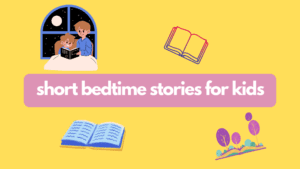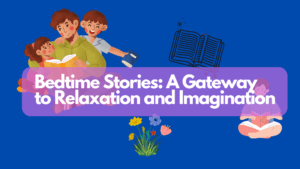
In the quiet moments just before sleep, parents and children around the world participate in a cherished ritual that goes beyond mere storytelling: bedtime reading. This age-old tradition is not just about lulling young ones to sleep but also about nurturing bonds, sparking imagination, and instilling life-long values. In this blog, we will explore why bedtime stories are good for kids and the profound benefits of bedtime stories, backed by psychological insights.

What is the goal of bedtime story reading?
The primary aim of reading bedtime stories isn’t just to entertain; it serves a deeper, more holistic purpose. Bedtime stories such as “The Quest for the Giggle Goblet” are a unique opportunity for parents to foster a secure and nurturing environment for their children. This routine helps settle children down for the night but more importantly, it aids in their emotional and cognitive development. Through these stories, children learn empathy, gain insight into different cultures and perspectives, and begin to develop their moral compass.

What does psychology say about the importance of reading bedtime stories to children?
Psychology strongly supports the ritual of reading to children at bedtime. Studies suggest that this practice not only enhances children’s linguistic abilities but also helps in developing their cognitive skills, such as memory and creative problem-solving. Psychologists find that bedtime stories are instrumental in the emotional bonding between parents and children. This shared activity helps reduce childhood anxiety and promotes a sense of security and well-being, which are crucial for a child’s mental health.

Why is telling stories at night time essential?
But why at night? Nighttime storytelling plays a special role due to its timing. As the day winds down, children’s minds are less distracted and more open to listening and absorbing information. The tranquility of the evening helps foster a more intimate atmosphere where stories can be more impactful. Moreover, ending the day with positive narratives can influence children’s dreams and sleep quality, contributing to better overall health.

FAQs
- What is the ideal length for a bedtime story?
Aim for 5 to 20 minutes, adjusting to keep your child’s attention. - Can stories ease nightmares?
Yes, they bring comfort and can turn scary thoughts into sweet dreams. - What is better, E-books or paper books?
Paper books are best at bedtime, but e-books offer ease and a wide array of options. - How to make reading Interactive?
Discuss the story, ask questions, and let your child’s imagination lead the way.





One thought on “The Importance of Bedtime Stories”